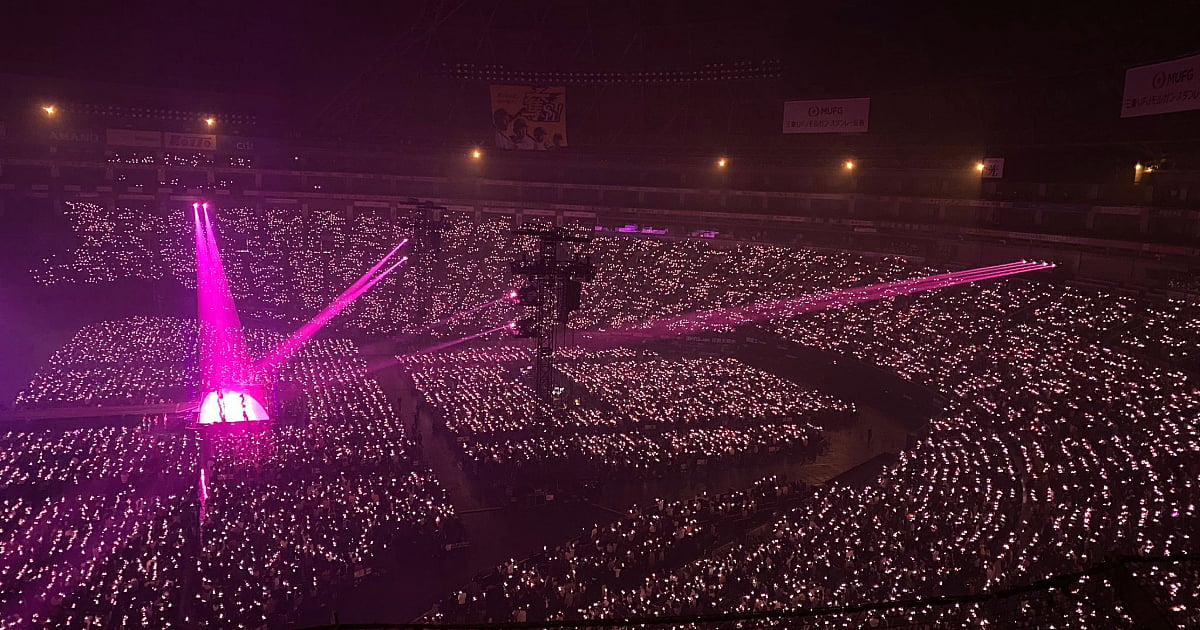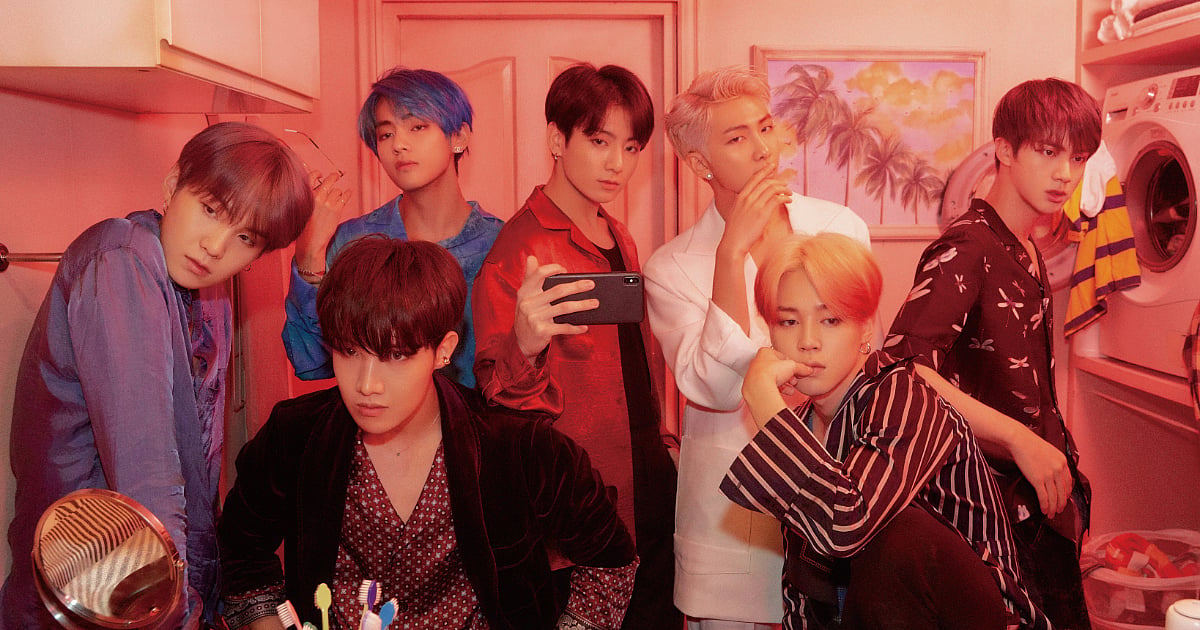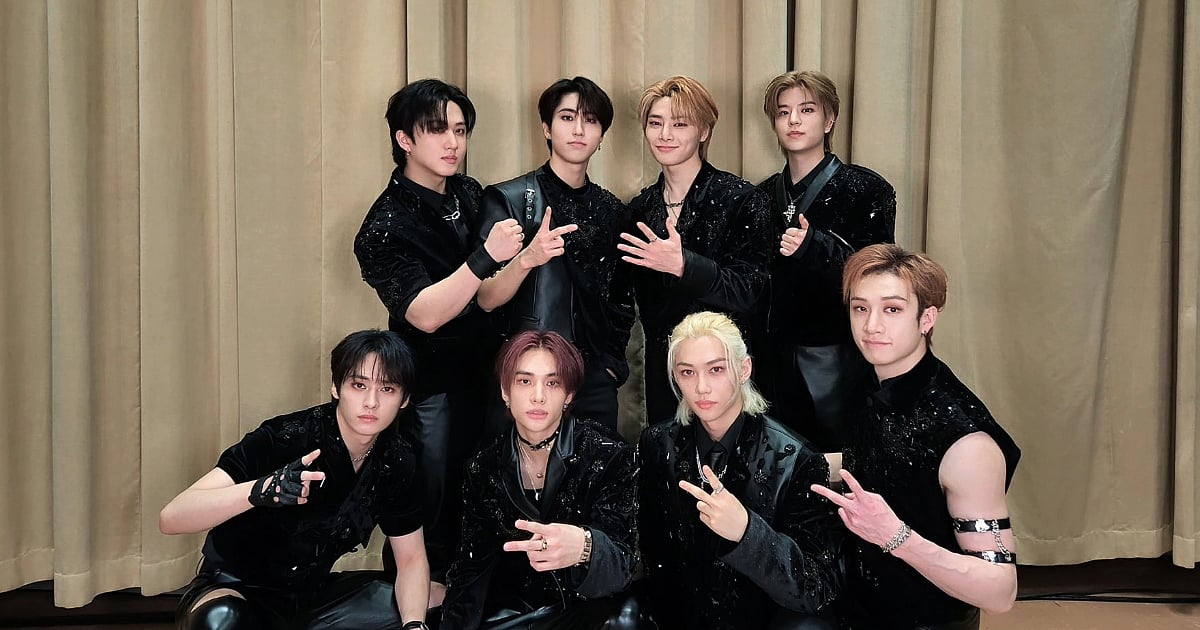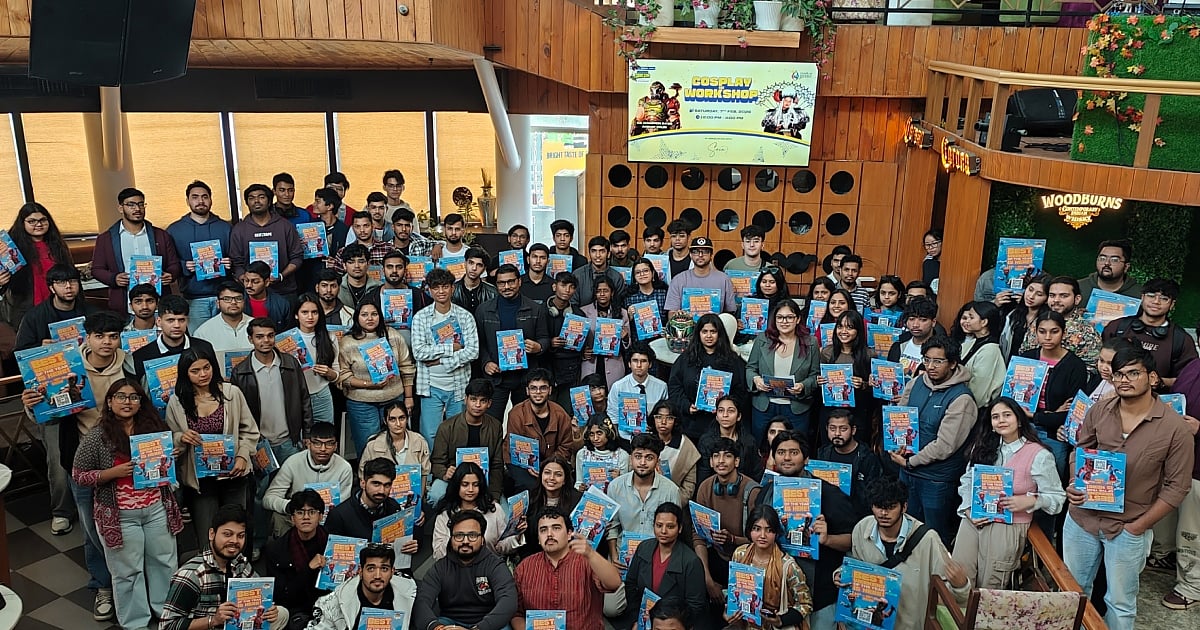
PLAVE at K-World Dream Awards
K-Pop's Virtual Idols: A Guide to the AI Revolution
Highlights
- K-pop's new stars are virtual idols, either AI-generated or human-controlled avatars.
- This has become a massive industry backed by major tech and entertainment companies, with the market projected to surpass $15 billion.
- These digital groups are topping real-world music charts, like Billboard, and earning millions of views.
You’ve seen them in your YouTube recommendations, their music videos racking up millions of views. You’ve seen them collaborating with luxury brands and topping music charts. But you might still be asking yourself a very valid question: are these K-pop idols even real?
Welcome to the world of AI and virtual K-pop, the next evolution of a global music phenomenon. As of 2025, a new generation of Korean artists are selling out concerts and winning awards without ever setting foot on a physical stage.
This isn't just a sci-fi gimmick; it's a rapidly growing, multi-billion-dollar industry that is redefining what it means to be a pop star. Here's your complete guide to the rise of AI K-pop.
What Are AI and Virtual K-pop Idols?
Think of a virtual idol as a pop star who only exists on screen. They are hyper-realistic, computer-generated characters, but how they come to life varies.
Virtual Avatars: Some groups, like the boy band PLAVE, are closer to digital puppets. Their voices, dance moves, and personalities come from real, anonymous human performers working behind the scenes with motion-capture technology. You're hearing and interacting with a real person in a digital body.
AI-Generated Idols: Groups like MAVE: lean more heavily on artificial intelligence and data. Their voices are synthesized from data, and generative AI helps write their songs. They are personalities born entirely from code.
The Road to Virtual Stardom
The story of the virtual idol isn't as new as you might think, but the technology has finally caught up to the dream. The journey began with early pioneers like Japan's Kyoko Date (1996) and South Korea’s first cyber-singer, Adam (1998).
The real game-changer was Japan's Hatsune Miku (2007), a singing synthesizer who became a global icon. She proved that a virtual artist could pack stadiums for live concerts (as a hologram) and build a massive, dedicated fanbase.
For K-pop, the modern catalyst was K/DA, the virtual girl group created by Riot Games in 2018 for League of Legends. Their hit song "POP/STARS" was a worldwide sensation, pivoting the entire K-pop industry to the massive potential of virtual artists.
Today's era is the direct result of that spark, with companies now investing billions to build entire virtual groups from scratch.
A Billion-Dollar Industry
This digital revolution isn't a niche experiment but has turned into a big business. The global virtual human and avatar market was already valued in the billions, and as of 2025, it is projected to skyrocket past $15 billion in the coming years.
A unique ecosystem of entertainment giants, cutting-edge tech firms, and savvy investors powers this new frontier. Traditional agencies like SM Entertainment (aespa) are competing with specialized newcomers like VLAST (PLAVE).
Behind the scenes, game engines like Unreal Engine provide the stunning visuals, while tech firms like Galaxy Corporation develop the AI brains. This massive potential has attracted big money from giants like HYBE (BTS's agency), all betting that virtual idols are the future.
K-Pop's Top 10 Virtual Idols of 2025
The virtual K-pop scene is exploding, but a few stars are shining brighter than the rest, dominating the charts, social media, and YouTube.
aespa: As a hybrid group from SM Entertainment, aespa and their virtual "æ" counterparts are the undisputed pioneers. Their crossover appeal is unmatched, with their iconic music video for "Next Level" surpassing 300 million views and consistently landing them high on global charts, such as Billboard.
PLAVE: Managed by tech startup VLAST, the kings of the all-virtual boy group feature performances powered by real members in motion-capture suits. This creates an authentic connection that has led to massive success. Their recent hit "The 6th Summer" gained over 50 million views and their albums topped major Korean music charts.
ISEGYE IDOL: This six-member girl group, by streamer Woowakgood and Parable Entertainment, is a grassroots phenomenon born from the online streaming community. Their debut music video, "RE:WIND," has over 19 million views and was a massive domestic hit, proving a virtual group can achieve incredible chart success without a traditional agency.
MAVE: Backed by gaming giant Netmarble and managed by Metaverse Entertainment, this all-virtual girl group made a splash with a high-budget debut using generative AI. Their music video for "PANDORA" has over 28 million views, and they've secured major brand deals, including becoming ambassadors for the video game PUBG.
K/DA: The original virtual supergroup from Riot Games remains an absolute powerhouse. Though their releases are tied to League of Legends events, their music video for "POP/STARS" has a staggering 590 million views, proving their lasting global impact.
Naevis: Originally a character in aespa's lore, SM Entertainment launched her as a solo AI artist. Her debut leverages the full force of SM's production, and her first music video, "Done," is already gaining traction with over 8 million views.
SKINZ: This virtual hip-hop duo from the collective LIT! represents the genre's diversification. Known for their edgy concept and collaborations with real-world artists, their tracks are steadily gaining a following, with over 2 million views on their latest release, "Glitch Mode."
IITERNITI: Created by Pulse9 using deepfake technology, this group was a crucial proof-of-concept for AI-generated idols. Their music video for "I'm Real" has over 1.4 million views.
APOKI: A solo virtual artist managed by AFUN INTERACTIVE, APOKI has been active for years, building a strong following on TikTok and YouTube. Her consistent releases, like "GETTIN' HIGH" with over 10 million views, makes her a social media force.
FE:VERSE: Formed through a survival show run by Kakao Entertainment, this 5-member virtual girl group brought a popular K-pop format into the digital realm. Their debut track, "CHO," has garnered over 2 million views.
How Digital Stars Make Real Money
It’s a mix of old-school music industry tactics and futuristic tech. They sell classic albums and merchandise, but also hold massive virtual concerts on platforms like YouTube and Twitch.
They're a dream for advertisers as "scandal-free" ambassadors who are always on-brand. MAVE, for instance, has promoted everything from mobile games to iced tea, showing just how profitable these digital stars can be.
Is a 'Perfect' Idol a Good Thing?
Let's be honest, the idea of a "perfect" idol that never ages or makes mistakes is... a little creepy to some. It raises tough questions about the already high beauty standards in K-pop and whether it's healthy for fans to build deep connections with what is, at the end of the day, a very advanced computer program.
Can AI-generated art truly be creative? And will these perfect virtual stars eventually take jobs away from human artists? The debate is just getting started.
What's Next?
And this is just the beginning. The next five years could see the emergence of fully autonomous AI idols who generate their own music and choreography. For K-pop, an industry built on innovation, this isn't the end of an era; it's the beginning of a bold, new, and undeniably virtual one.

Author
Krishna Goswami is a content writer at Outlook India, where she delves into the vibrant worlds of pop culture, gaming, and esports. A graduate of the Indian Institute of Mass Communication (IIMC) with a PG Diploma in English Journalism, she brings a strong journalistic foundation to her work. Her prior newsroom experience equips her to deliver sharp, insightful, and engaging content on the latest trends in the digital world.
Krishna Goswami is a content writer at Outlook India, where she delves into the vibrant worlds of pop culture, gaming, and esports. A graduate of the Indian Institute of Mass Communication (IIMC) with a PG Diploma in English Journalism, she brings a strong journalistic foundation to her work. Her prior newsroom experience equips her to deliver sharp, insightful, and engaging content on the latest trends in the digital world.
Related Articles







